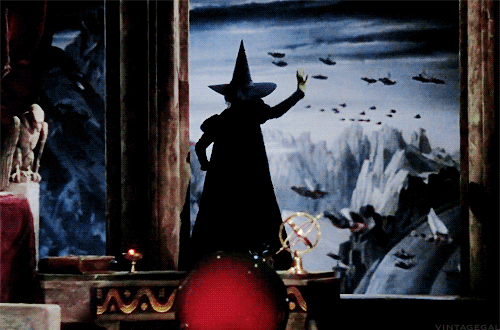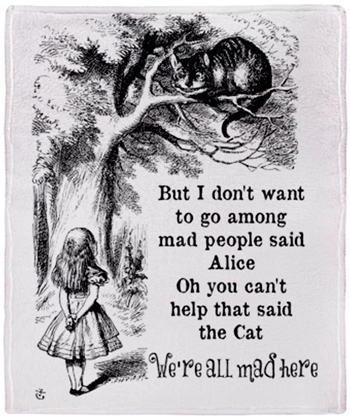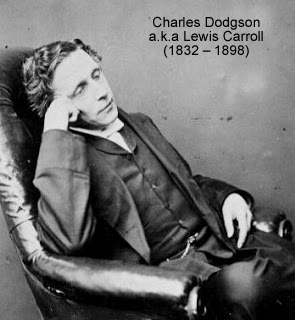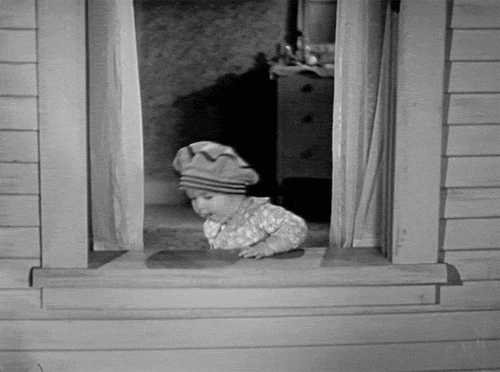Lawrence R. Spencer's Blog, page 479
October 3, 2015
THE NATURE OF MAN
 Candide: or, The Optimist (1762) It begins with a young man, Candide, who is living a sheltered life in an Edenic paradise and being indoctrinated with Leibnizian optimism (or simply “optimism”) by his mentor, Professor Pangloss. The work describes the abrupt cessation of this lifestyle, followed by Candide’s slow, painful disillusionment as he witnesses and experiences great hardships in the world. Voltaire concludes with Candide, if not rejecting optimism outright, advocating a deeply practical precept, “we must cultivate our garden”, in lieu of the Leibnizian mantra of Pangloss, “all is for the best” in the “best of all possible worlds”.
Candide: or, The Optimist (1762) It begins with a young man, Candide, who is living a sheltered life in an Edenic paradise and being indoctrinated with Leibnizian optimism (or simply “optimism”) by his mentor, Professor Pangloss. The work describes the abrupt cessation of this lifestyle, followed by Candide’s slow, painful disillusionment as he witnesses and experiences great hardships in the world. Voltaire concludes with Candide, if not rejecting optimism outright, advocating a deeply practical precept, “we must cultivate our garden”, in lieu of the Leibnizian mantra of Pangloss, “all is for the best” in the “best of all possible worlds”.
Candide is characterised by its sarcastic tone as well as by its erratic, fantastical and fast-moving plot. A picaresque novel with a story similar to that of a more serious Bildungsroman, it parodies many adventure and romance clichés, the struggles of which are caricatured in a tone that is mordantly matter-of-fact. Still, the events discussed are often based on historical happenings, such as the Seven Years’ War and the 1755 Lisbon earthquake. As philosophers of Voltaire’s day contended with the problem of evil, so too does Candide in this short novel, albeit more directly and humorously. Voltaire ridicules religion, theologians, governments, armies, philosophies, and philosophers through allegory; most conspicuously, he assaults Leibniz and his optimism.
François-Marie Arouet (French: 21 November 1694 – 30 May 1778), known by his nom de plume Voltaire, was a French Enlightenment writer,  historian, and philosopher famous for his wit, his attacks on the established Catholic Church, and his advocacy of freedom of religion, freedom of expression, and separation of church and state. Voltaire was a versatile writer, producing works in almost every literary form, including plays, poems, novels, essays, and historical and scientific works. He wrote more than 20,000 letters and more than 2,000 books and pamphlets. He was an outspoken advocate of several liberties, despite the risk this placed him in under the strict censorship laws of the time. As a satirical polemicist, he frequently made use of his works to criticize intolerance, religious dogma, and the French institutions of his day.
historian, and philosopher famous for his wit, his attacks on the established Catholic Church, and his advocacy of freedom of religion, freedom of expression, and separation of church and state. Voltaire was a versatile writer, producing works in almost every literary form, including plays, poems, novels, essays, and historical and scientific works. He wrote more than 20,000 letters and more than 2,000 books and pamphlets. He was an outspoken advocate of several liberties, despite the risk this placed him in under the strict censorship laws of the time. As a satirical polemicist, he frequently made use of his works to criticize intolerance, religious dogma, and the French institutions of his day.
(reference: Wikipedia.org)
October 2, 2015
FLYING MONKEYS
 Excerpt from the book THE OZ FACTORS by Lawrence R. Spencer
Excerpt from the book THE OZ FACTORS by Lawrence R. Spencer
“Take special care of those Ruby Slippers. I want those most of all … now fly! fly! fly!” –The Witch beseeching her Flying Monkeys to capture Dorothy in ‘The Wizard of Oz‘
“THE PSYCHO-BABBLE OF FLYING MONKEYS — It is said that the mythical Tower of Babble was a mechanism created by the gods as a way to create different languages among men. The variety of languages was intended to make it more difficult for men to communicate with each other. The barriers to communication, therefore, would make it more difficult for men to get together and figure out what the gods were really up to. In this way, the secret activities of the gods would be secure.
Like the ancient myth, there are modern, would-be gods and witches who have secrets and hidden agendas to hide. A common hiding technique is to “redefine” language and invent new words that are “politically correct”, yet nonsensical in reality. As with the gods of old, the intention of such redefinition of language is to disguise a hidden agenda or misdirect attention.
For example, psychiatry fabricate words to describe newly invented mental “diseases”–the so-called disease of school children called “attention deficit disorder” for instance. This nonsense language is called “psycho-babble”.
The Communist Party in Russia was notorious for their masterful redefinition of the language to re-educate the people of Russia into a new, socialized thinking about themselves and the world. For example, the Communists used the word “comrade” instead of “peasant worker” and “commissar” instead of “czar”. (The only real difference between a commissar and a capitalist and an aristocrat, who the commissar despises, is spelling! They are each supported by the work of other people, as none of them produces anything of value themselves.)
Politicians put a spin on existing words and ideas in order to covertly influence our thinking. Television, movies and news media feed us the newly defined, politically correct words and ideas as they are revised and released. For example, the federal government spends billions more than it collects in taxes every year. In the business world this is called “overspending” which results in “bankruptcy”. In the political world, the politico-babble word for it has been changed to “deficit spending” and results in a “budget deficit”.
The world of advertising is another culprit using these methods. The newest and therefore hip, cool, groovy trend or fad is usually designed to sell something–music, clothing, drugs, movie tickets, etc. For example, the marketing campaign designed to sell “oversized, overpriced, luxury, four-wheel drive, passenger trucks”, is made more acceptable with the phrase, “sports utility vehicle”.
The subject of the spirit, in the Western world, is another example of a subject which remains heavily shrouded in mystery and skepticism. There is a “politically correct” nomenclature used by the “doctors” of psychiatry to describe the spirit, which has been made intentionally obtuse and foreboding. Psychiatry uses condescending phrases like “paranormal”, to describe spiritual phenomenon, which literally means, outside of the normal. Of course, the unspoken implication is that being “normal” is supposed to be some nebulous state of perfect bliss and fulfillment that can be achieved only by a strict, life-long adherence to the rituals of the normal or chosen class. A “normal” person eats cheeseburgers, pays taxes, takes drugs, buys mass quantities of merchandise he or she doesn’t need, and believes that what he or she sees on television is “the truth”.
Another favorite phrase used to describe spiritual matters is “alternative reality”. Okay, so let’s see … there’s only ONE reality and it’s the reality you’ve been told to believe by the government and the television set and your shrink. If you don’t agree with the ONE reality they’ll lock you up in a loony-bin, drug you, electroshock you, give you a pre-frontal lobotomy. Finally, when your insurance company won’t pay them any more money to keep you locked up, they’ll let you out for the rest of your so-called “life” as a brain-dead vegetable. You have now been “cured” of your “delusions” and are “being reasonable” and “realistic”. Gee, that’s some “alternative” reality.
“Parapsychology” is yet another distorted concept which literally means, “the study of things around the spirit”. The only problem is that the “study” is being conducted by psychiatrists, with government funding, who, through a meticulous process of torturing laboratory animals, have “expertly” concluded that man is a stimulus-response animal, and not a spiritual being.
As we will see, the goal of such “research” is to learn how to CONTROL the behavior of men in order to make them more obedient taxpayers.”
September 30, 2015
HOW DO YOU KNOW YOU’RE MAD?
 Excerpt from the book SHERLOCK HOLMES: MY LIFE
Excerpt from the book SHERLOCK HOLMES: MY LIFE 
“”I do not ask you, or anyone, to believe anything whatsoever. Belief is a matter of personal opinion or conviction which cannot be shared by anyone else, accept to the degree that they share a similar opinion. Some men believe that the world was created by an omnipotent, invisible being in seven days. People in some aboriginal tribes believe that the world is supported on the back of an enormous elephant which stands upon the shell of a colossal tortoise”, I said, finally arriving at the pages I was looking for in the manuscript.
“As for myself, I believe that what is true for you is true for you, although no other person may agree upon your belief. Regardless, a truth for you, may not be true for others. Is that not a fundamentally sound assumption?”, I asked.
 “I suppose you are right Mr. Holmes. It is difficult, if not impossible, to stay apace of your ability to remain logical in the face of a situation which is so absurdly enigmatic. You are proposing that the philosophical paradigm of reality should be considered of equal importance with fiction. How can you ever solve a criminal case, your occupation, if every piece of hard evidence could be a contrivance of imagination on the part of the investigator or of the criminal?”, said Mr. Dodgson.
“I suppose you are right Mr. Holmes. It is difficult, if not impossible, to stay apace of your ability to remain logical in the face of a situation which is so absurdly enigmatic. You are proposing that the philosophical paradigm of reality should be considered of equal importance with fiction. How can you ever solve a criminal case, your occupation, if every piece of hard evidence could be a contrivance of imagination on the part of the investigator or of the criminal?”, said Mr. Dodgson.
“Quite the contrary”, I said. “But rather than keeping to my methods alone, let me ask you what meaning you attribute to the following passage in your book”, I said, turning to the page which described in the encounter between Alice and the Cheshire Cat.
“Let me read your own words to you.”
“…she was a little startled by seeing the Cheshire Cat sitting on a bough of a tree a few yards off.
The Cat only grinned when it saw Alice. It looked good-natured, she
thought: still it had VERY long claws and a great many teeth, so she
felt that it ought to be treated with respect.
‘Cheshire Puss,’ she began, rather timidly, as she did not at all know
whether it would like the name: however, it only grinned a little wider.
‘Come, it’s pleased so far,’ thought Alice, and she went on. ‘Would you
tell me, please, which way I ought to go from here?’
 ‘That depends a good deal on where you want to get to,’ said the Cat.
‘That depends a good deal on where you want to get to,’ said the Cat.
‘I don’t much care where–‘ said Alice.
‘Then it doesn’t matter which way you go,’ said the Cat.
‘–so long as I get SOMEWHERE,’ Alice added as an explanation.
‘Oh, you’re sure to do that,’ said the Cat, ‘if you only walk long
enough.’
Alice felt that this could not be denied, so she tried another question.
‘What sort of people live about here?’
‘In THAT direction,’ the Cat said, waving its right paw round, ‘lives
a Hatter: and in THAT direction,’ waving the other paw, ‘lives a March
Hare. Visit either you like: they’re both mad.’
‘But I don’t want to go among mad people,’ Alice remarked.
‘Oh, you can’t help that,’ said the Cat: ‘we’re all mad here. I’m mad.
You’re mad.’
‘How do you know I’m mad?’ said Alice.
‘You must be,’ said the Cat, ‘or you wouldn’t have come here.’
Alice didn’t think that proved it at all; however, she went on ‘And how
do you know that you’re mad?'”
“So, Mr. Dodgson, let me pose the same question to you that young Alice asked of the chimerical cat in your own story: how do you know whether you are mad or not mad? How would you satisfy yourself that I am not mad? How do we know that everyone is mad or not mad?”, I said, rising from my chair to place the manuscript upon the sideboard.
I refilled my pipe once again, in anticipation of the protracted debate that was sure to follow on the heels of these profoundly, absurd, yet existential queries and arguments.
 Mr. Dodgson did not seem the least bit nonplused by my insinuation regarding his sanity, or the sanity of all. Rather, he thanked us very cordially for our hospitality, rose from his chair and reached the door to exit the apartment. As he reached the door he turned back to me.
Mr. Dodgson did not seem the least bit nonplused by my insinuation regarding his sanity, or the sanity of all. Rather, he thanked us very cordially for our hospitality, rose from his chair and reached the door to exit the apartment. As he reached the door he turned back to me.
“Mr. Holmes, I will leave the resolution of this mystery entirely in your very capable hands. If anyone were able to solve the questions you pose to me, I assure you that I am not that man. Neither are any of the mentors whom I have studied, including Sir Isaac himself. I trust that you will be kind enough to inform me of your eventual success, if such is possible. Good day to you, gentlemen”.
With that, he departed, clomped down the stairs. Through the window we saw him walk briskly away through a light drizzle of rain in the direction of the train station.”
CERES “LIGHTS” CRATER IN COLOR
 The most recent composite image released by NASA’s is a color-coded topographic map of Occator crater on Ceres. The photo is extremely low-resolution, of course, so no details of the “city” or “base” can be clearly seen. However, the image does provide a sense of depth and proportion of the “lights” compared to the size and topography of the crater. The blue is the lowest elevation, and brown is the highest. The crater is approximately 56 miles (90 kilometers wide). Proportionately, the “lights” could extend roughly 20 miles (32 kilometers) in length.
The most recent composite image released by NASA’s is a color-coded topographic map of Occator crater on Ceres. The photo is extremely low-resolution, of course, so no details of the “city” or “base” can be clearly seen. However, the image does provide a sense of depth and proportion of the “lights” compared to the size and topography of the crater. The blue is the lowest elevation, and brown is the highest. The crater is approximately 56 miles (90 kilometers wide). Proportionately, the “lights” could extend roughly 20 miles (32 kilometers) in length.
September 29, 2015
AERIAL BOUNDARIES
Michael Hedges – “Aerial Boundries” (FULL ALBUM)
Michael Alden Hedges (December 31, 1953 – December 2, 1997) was an American composer, acoustic guitarist and singer-songwriter. He is known for having pioneered percussive finger style guitar, the influence of which can now be heard in the compositions and playing of many guitarists.
Website — Michael Hedges http://www.nomadland.com/Bio.htm
THE PERFECT MAN
Mankind remains virtually unchanged, in essence or fundamental behavior, during the past 2,400 years. There is a great deal in Aristotle’s description of “the perfect man” to recommend as a path for living now, just as there was during his lifetime ca. 350 B.C.E..
Aristotle (384 BCE — 322 BCE) was a Greek philosopher, a student of Plato and teacher of Alexander the Great. His writings cover many subjects, including physics, metaphysics, poetry, theater, music, logic, rhetoric, linguistics, politics, government, ethics, biology, and zoology. Together with Plato and Socrates (Plato’s teacher), Aristotle is one of the most important founding figures in Western philosophy. Aristotle’s writings were the first to create a comprehensive system of Western philosophy, encompassing morality and aesthetics, logic and science, politics and metaphysics.
September 28, 2015
SERENE SOMEWHERE
In a world filled with chaos, here is 5 minutes of serenity….
“Somewhere Over The Rainbow” is a classic song by Harold Arlen from the film, The Wizard of Oz, arranged and performed by Tommy Emmanuel.
CHOOSE A CAPTION
WHICH CAPTIONS BEST DESCRIBE THESE PICTURES?
 1. A PRIVATE BANKER “CREATING” MONEY
1. A PRIVATE BANKER “CREATING” MONEY
2. THE ACTUAL VALUE OF FIAT CURRENCIES
3. CONGRESS HARD AT WORK ON THE “DEFENSE BUDGET”
4. GERMANY HANDING OUT 670 EUROS A MONTH TO REFUGEES
5. THE “LOGIC” OF POLITICIANS
6. THE END OF HUMAN “CIVILIZATION”
September 27, 2015
SOLAR PERSPECTIVE
How significant is Earth and our solar system compared to the stars? Maybe space traveling civilizations overlook Earth because it’s too small to notice.
FOLLOW THE MONEY TO THE 9/11 PERPS
A competent criminal investigation should begin by discovering the “psychos” who paid for or profited from a crime, in this case the 9/11 “hit”. The “official investigation” carefully avoided this to protect the guilty. Can you say “bankster-military-industrial-congressional-complex-criminals”? This video provides many details about this false flag crime.
Learn more at the “Corbett Report” website:
https://www.corbettreport.com/episode-308-911-trillions-follow-the-money/






